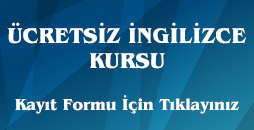9. How is SIT TESOL similar to, and different from, the CELTA?
Both courses…
- prepare course participants/trainees to teach English language to adults, in English
- result in internationally-recognized certificates awarded to participants who successfully complete the course
- require that applicants have an advanced/nearly proficient level of written and spoken English so that they will be credible to advanced-level students/learners
- can be run as intensive, four-week, or extensive (12-week) face-to-face courses
- involve 6 hours of trainer-/tutor-assessed teaching practice with actual English language learners; each participants delivers 6 hours of lessons individually
- have a 100% attendance requirement (if a participant/trainee unavoidably misses a very minimal amount of time, s/he is responsible for making up all work missed)
- offer participants supported lesson planning time
- have workshop sessions/input that are focused on effective classroom management, techniques and foundational teaching skills
- require that participants/trainees submit written work for assessment
- are externally moderated (i.e., are assessed by someone external to the course and the organization/site that is running the course)
- are outcomes- (goals and objectives/aims) based; participants’/trainees’ progress in meeting the outcomes is continuously assessed and is mainly based on a combination of progress in planning for and teaching lessons , on written work and on participation
- use professional trainers/tutors who have had to go through a structured training- of-trainers process; this is also moderated
- encourage an eclectic, student-centered, communication-oriented approach to teaching
- encourage participants/trainees to structure lessons logically and in a way that supports learning (e.g., the pre/before-during-post/after staging framework for receptive skills)
- provides challenge for both novice and experienced teachers
The SIT TESOL Certificate course is significantly different in that it is explicitly based on SIT’s application of John Dewey’s Experiential Learning theories, which inform all aspects of the course. The course follows a cycle of experience and processing that starts with the course participants having a learning and/or teaching experience(s); they reflect on/analyze what happened, individually and as a group, to form theories or draw conclusions, which are then connected to current, internationally-recognized thinking/theories in the field; finally participants formulate concrete actions to take e.g., in subsequent teaching sessions. The cycle is repeated multiple times during the course.
Other significant features of the SIT TESOL Certificate course are that it:
- guides participants to develop teacher thinking and reflection skills through explicit use of the experiential learning cycle; by using the cycle, participants’ develop structured and increasingly in-depth reflection skills which they use as a means of improving their teaching
- focuses participants’ evaluation of effective teaching, consistently and explicitly, on what helped and what hindered their students’ and their own learning; the course focus is learning-centered
- focuses explicitly on certain principles and features of learning and teaching that are generalized beyond a specific classroom context
- gives participants focused opportunity during lesson planning and practice teaching feedback to help them make connections between their teaching, their beliefs and theories in the field so that they can identify and take thoughtful and achievable actions;
- includes a module focusing on understanding culture and its role in learning and teaching, and on developing inter-cultural understanding
- addresses and supports teamwork explicitly in workshops, lesson planning and practice teaching throughout the course
- does not necessarily offer special interest sessions commonly offered on CELTA courses (Teaching Younger Learners, Teaching Business English, CALL) as the focus on the modular content is in depth
- is a pass-fail course with no grades; participants who do not meet the course requirements and competencies receive a Letter of Learning rather than a certificate
- is usually a 130-hour course
- is based on the work and learning theories of John Dewey, Carol Rodgers, Donald Finkel, David Kolb, Jane Vella, amongst others







